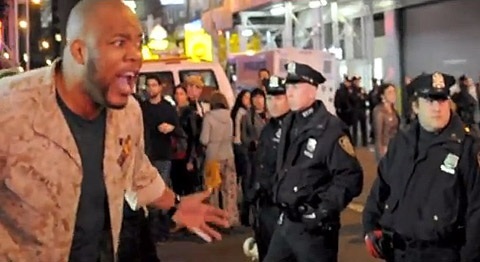Supreme Court Justice Potter Stewart famously wrote that he could not define pornography, "But I know it when I see it." A Brooklyn Criminal Court Judge recently decided that she could define a lewd act when he saw it and he knew it from a defendant's exposed penis.
In June 2015, a New York City police officer allegedly observed Clarence Wade on a Brooklyn street corner with four others, blocking the sidewalk and yelling loudly a little past midnight during a weekday. The police officer allegedly repeatedly told Mr. Wade to quiet down and move on. Mr. Wade's alleged response was to approach the police officer aggressively, pull down his pants and expose his penis demanding that the police officer, well, perform oral sex--though the request was perhaps less artfully stated.
Surprise! Mr. Wade was arrested and charged with Public Lewdness and Exposure of a Person in addition to Resisting Arrest and Disorderly Conduct. Recently, Mr. Wade's defense attorney filed a motion to dismiss the Public Lewdness charge because the complaint "fail[ed] to show that the defendant exposed his penis in a lewd manner or committed any lewd acts." The defense motion argued that "it is unclear whether the defendant exposed his genitalia, and then that no allegation of an overtly sexual lewd act has been presented."
The defense rested its argument in part on an appeal following the conviction of nude dancers in New York in 1978. The dancers had been convicted of Obscenity in the Second Degree. In People v. Ventrice, the court reversed the conviction reasoning "Since lewdness cannot be presumed from the mere fact of nudity, there must be a showing of lewd conduct from which the intention to act in a lewd manner can be drawn." The court noted that topless dancing had recently gained some First Amendment protection--this was still the late 70s--and that mere exposure of genitals without a lewd act was a form of free expression.
Without addressing lewdness in the context of nude dancing, in Mr. Wade's case Judge Joy F. Campanelli ruled in People v. Wade that, yes, waving one's penis at a police officer on a public street combined with a less than inviting invitation to perform oral sex may indeed be lewd. In refusing to dismiss the charges, the Judge Campanelli applied a test for lewdness that is both objective, subjective and paradoxical.
First, the decision noted that the state legislature has not defined what lewd means. Relying on a legal dictionary, the Court defined the term as "obscene or indecent; tending to moral impurity or wantonness." Next, the Judge applied an objective test: Could the "exposure or emphasis on private or intimate parts of his body offend the citizens' public sensibilities?" Finally, the subjective test: Are the acts "lewd as measured by the average citizen applying contemporary community standards?" The Judge held that the answer to both questions were yes.
Mr. Wade's case is still pending; of course, Mr. Wade is innocent of all the charges until proven guilty beyond a reasonable doubt. Notwithstanding Judge Campanelli decision, the case does raise questions that implicate the First Amendment, namely the contemporary community standards test prong. For now, despite a certain presidential candidate's rhetoric, New York values may not be dissimilar to those, say, in the Lone Star State.

